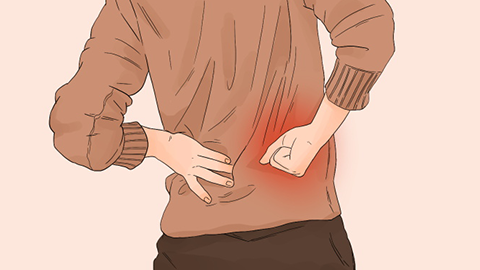What causes pain in the arms and back?
Aches in the arms and back are generally caused by muscle strain, poor posture, myofascial inflammation, periarthritis of the shoulder, lumbar disc herniation, or other conditions. It is recommended to seek medical attention promptly to determine the underlying cause and receive appropriate treatment under a doctor's guidance. Specific analysis is as follows:

1. Muscle strain: Prolonged heavy physical labor or excessive exercise can repeatedly stretch and damage muscles in the arms and back, causing pain. Rest adequately, reduce weight-bearing activities, and apply heat therapy during painful episodes to relieve discomfort.
2. Poor posture: Sitting for long periods and frequently looking down at electronic devices can keep arm and back muscles in a prolonged state of tension, impairing blood circulation and leading to pain. Adjust daily posture, stand up and move regularly, maintain an upright spine, and avoid staying in the same position for extended periods.
3. Myofascial inflammation: Cold exposure or excessive fatigue may trigger myofascial inflammation, resulting in diffuse pain in the arms and back that worsens with activity. Follow your doctor’s advice to use medications such as celecoxib capsules, diclofenac sodium sustained-release tablets, or ibuprofen sustained-release capsules to relieve pain, and ensure proper local warmth.
4. Periarthritis of the shoulder: Aseptic inflammation in soft tissues surrounding the shoulder joint may cause referred pain in the back and arms, often accompanied by limited shoulder joint movement. Under medical supervision, medications such as etoricoxib tablets, meloxicam tablets, or loxoprofen sodium dispersible tablets may be used, along with physical therapies like acupuncture and massage. In severe cases, shoulder joint release surgery may be performed to improve joint mobility.
5. Lumbar disc herniation: Herniated lumbar discs compressing nerve roots may cause radiating pain extending to the arms and back, possibly accompanied by numbness. As directed by a physician, medications such as mecobalamin tablets, vitamin B1 tablets, or enteric-coated diclofenac sodium tablets may be used. In some cases, surgical removal of the herniated nucleus pulposus may be necessary to relieve nerve compression.
In daily life, maintain a balance between work and rest, avoid overexertion, warm up properly before exercising, and stretch muscles afterward. Choose chairs and mattresses of appropriate height, maintain healthy lifestyle habits, and engage in suitable exercises such as swimming or yoga to strengthen muscles and support joint health.




